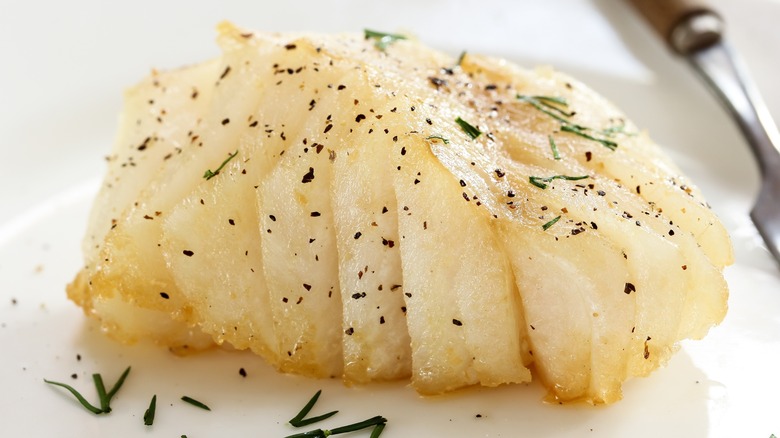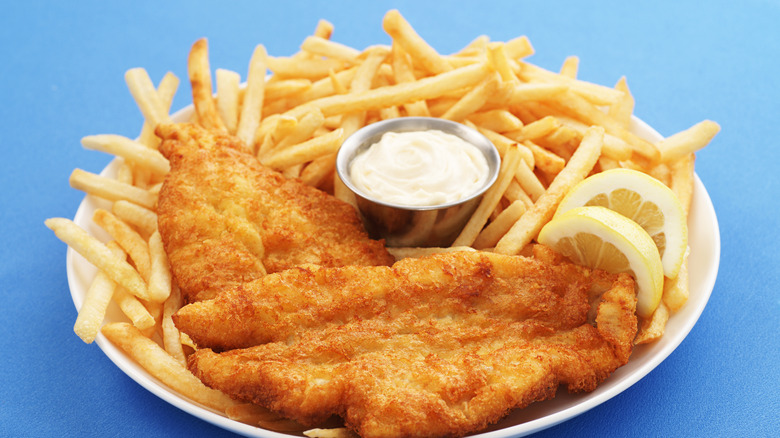Why You Should Avoid Ordering Atlantic Cod At A Seafood Restaurant
The next time you see Atlantic cod listed on a restaurant menu, think twice before placing your order. But fear not. You can still satisfy your craving for the sweetly delicate fish which long sustained indigenous peoples and early settlers — there's a reason an almost five-foot-long carved wooden cod hangs above the Hall of Representatives in the Massachusetts State House — it's just that the species has been overfished to the point of being vulnerable to extinction. The workaround? Just ask your server to confirm the restaurant sources its cod from sustainable fisheries.
Yes, it's easier said than done. Even the most sophisticated restaurant diners among us walk a fine line between engaging with our servers about menu details and coming off as overbearing know-it-alls. Take heart. If you're dining in a restaurant that values transparency and takes pride in its choices, your server will likely be ready, willing, and able to answer your questions. And if they don't personally know the answer, they'll be happy to check with the chef. When it comes to Atlantic cod harvested from waters off the coast of the United States, you'll want assurance that it's pole-and-line caught in one of two specific locations: Georges Bank or the Gulf of Maine. If the restaurant staff assures you their catch is, indeed, Atlantic cod, but can't confirm it's pole-and-line caught, you're in a quandary. The sustainable choice is to select another menu item — or find another restaurant.
What are the alternatives?
If your restaurant of choice doesn't specify Atlantic cod, and you value sustainable fishing practices, it's still a good idea to ask about sourcing. Odds are the menu item is referring to Pacific cod, a worthy alternative that's plentiful at the moment. But even if the menu specifically states it features Pacific cod, you'll want assurance that it was caught in the United States or Canada. The catch (pardon the pun) is that the broad category of Pacific cod includes fish caught in Japan or Russia. Pacific cod in Japan is as overfished as Atlantic cod and, in addition to its difficult-to-determine count, current import bans mean Russian-caught cod is off limits in the U.S. For more consistently reliable information, ask restaurant staff if the fish is certified by the Marine Stewardship Council, an international non-profit organization founded to ensure sustainable fishing practices.
If all else fails, take a closer look at the restaurant menu. You're likely to find alternative dishes featuring varieties of fish that closely mirror the taste and texture of Atlantic cod. Sustainable alternatives to Atlantic cod (in addition to Pacific cod) include Pacific lingcod and Alaska pollock. And when it comes to traditional fish and chips, plaice, coley, and skate are seamless replacements for cod. Last, but definitely not least, there's scrod. The generic cod replacement — any whitefish similar in taste and texture to Atlantic cod — is a mainstay on New England restaurant menus.

